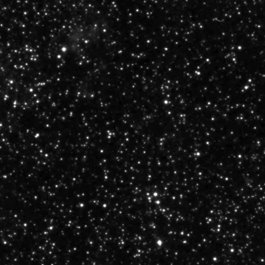18 April: Boreham on Star Gazing
 The Star Gazer
The Star GazerDoes the average Australian appreciate the notable fact that Australia enjoys a front-stall view of the lustrous pageantry of the universe? The question is asked by no less eminent an authority than the Astronomer Royal (Dr. R. V. Woolley).
Dr. Woolley declares that the seers and sages of the Northern Hemisphere envy Australians the dazzling panorama of astral magnificence which unfolds itself, night after night, on this side of the globe. He affirms that for sheer grandeur, sweep, and beauty, the stars which present themselves to Australian eyes make the sombre dome, into which European scientists peer, seem lifeless and empty; its modest adornments appear paltry and few.
The stars, whether in the Northern or Southern sky, exercise a ministry singularly their own. They represent one of the unifying factors of the universe. Exiles and wanderers, in all ages, have been oppressed in the daylight hours by the hideous monotony of the unfamiliar. But night comes; they lift their eyes to the stars; and they feel that old friends are looking down upon them; old landmarks are still visible. A link is forged with earlier scenes and earlier experiences; the home-sickness that was eating out their hearts is, for the time being, dispelled.
Links That Cannot Be Broken
In the days of the world's infancy an ancient prophet pointed an enslaved and dejected people to the glittering orbs which circled peacefully above their heads. Lifting their downcast faces, the prisoners observed that the stars then shining on the land of their captivity were the same stars which they knew in the country from which they had been so cruelly snatched. They instinctively felt that they possessed ties with the old homeland that no conqueror could break, and retained possibilities of restoration of which no tyrant could deprive them.
Merelyn Stobart tells how, in her young womanhood, she left her home in Sydney to be a governess on a great cattle run away back in the Never Never country. A member of the household noticed that after dark, Miss Stobart generally walked down to the big white gate of the homestead. She asked why. "Well," replied Merelyn, with a watery smile, "it's out of sheer loneliness. In the house, and about the station, everything is strange. But the darkness wraps up everything that is unfamiliar and hides it away from sight. Then the stars come out. They look exactly as they looked when I used to watch them from my window over Sydney harbour. They seem so companionable; all my solitude vanishes."
Thousands of exiles and wayfarers have narrated identically similar experiences. They feel exactly as the captive Hebrews felt when, by the rivers of Babylon, they looked up at night and beheld the very stars that they had so often seen from the streets of Jerusalem.
The Sense Of The Beyond
It is a ministry of consolation and encouragement but, like all such ministries, it has its limitations. The Astronomer-Royal's eulogy of our Southern sky demonstrates the incapacity of our Australian stars to comfort the multitudes of migrants who are pouring into these lands from the Northern Hemisphere. They look up when the dusk gathers around them, and even the stars are strange. Those who leave these lands to sojourn or reside in Europe also find themselves under unresponsive heavens.
Yet, even under such conditions, the stars are not altogether silent or unsympathetic. From time immemorial they have been saying things to the suffering and sorrowing sons of men that ears attuned to their speech have always welcomed. "The spectacle of stark infinity,” says Mark Rutherford, "is an immense help to me." He is, he tells us, speaking from poignant personal experience. On one occasion he was worried almost to death by the frustration of his dearest ambitions and the shipwreck of his plans. Was life worth living? Walking beneath the stars, the agonising tyranny was broken. The beyond and the beyond, turn it over as we may is, he insists, a magical relief from such mental pressure as that which had almost unseated his reason.
Beneath whatever stars we chance to dwell, there is indescribable balm in feeling that out beyond the measured, there is always the immeasurable; beyond the finite, infinity; beyond time, eternity; beyond the human, the divine.
F W Boreham
Image: Starry Sky


<< Home